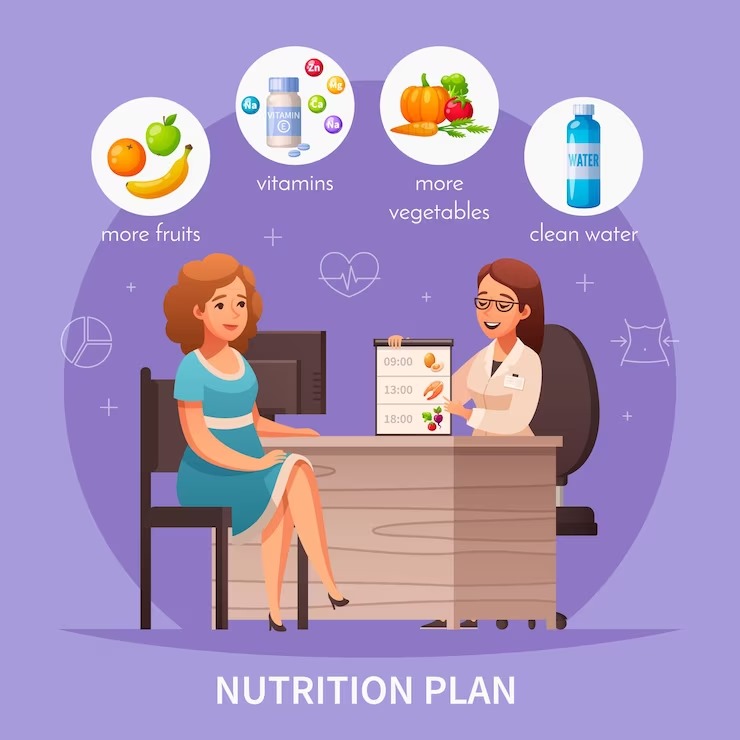
Congratulations on your pregnancy! This is an exciting time in your life, and it is important to take care of yourself and your growing baby by eating a healthy diet.

Nutrition is essential for pregnant women and their babies. Eating a healthy diet can help to:
- Reduce your risk of pregnancy complications, such as preeclampsia and gestational diabetes
- Promote the healthy growth and development of your baby
- Help you to maintain a healthy weight during and after pregnancy
- Give you energy to get through your pregnancy and postpartum period
What nutrients are essential for pregnant women and their babies?
Some of the most important nutrients for pregnant women and their babies include:
- Folic acid: Folic acid is essential for the prevention of neural tube defects, such as spina bifida and anencephaly. It is recommended that pregnant women take 400 micrograms of folic acid per day, starting at least one month before conception and continuing throughout the first trimester of pregnancy.
- Iron: Iron is important for carrying oxygen to the baby. Pregnant women need more iron than non-pregnant women, as they are producing blood for both themselves and their babies. It is recommended that pregnant women consume 27 milligrams of iron per day.
- Calcium: Calcium is important for the development of the baby's bones and teeth. Pregnant women need 1,000 milligrams of calcium per day.
- Vitamin D: Vitamin D helps the body to absorb calcium. Pregnant women need 600 international units (IU) of vitamin D per day.
- Protein: Protein is essential for the growth and development of the baby. Pregnant women need an extra 25-30 grams of protein per day.
Other important nutrients for pregnant women include beta-carotene, vitamin C, and vitamin B12.
How many calories do pregnant women need?
Pregnant women need an extra 300-500 calories per day, depending on their activity level and weight gain goals. It is important to note that this is not a free pass to eat whatever you want. The extra calories should come from healthy foods, such as fruits, vegetables, whole grains, and lean protein.
What are some tips for eating a healthy diet during pregnancy?
Here are some tips for eating a healthy diet during pregnancy:
- Eat plenty of fruits and vegetables: Fruits and vegetables are packed with vitamins, minerals, and antioxidants that are essential for you and your baby. Aim to eat at least five servings of fruits and vegetables per day.
- Choose whole grains over refined grains : Whole grains are a good source of fibre, which can help to keep you feeling full and satisfied. They are also a good source of vitamins, minerals, and antioxidants.
- Eat lean protein sources: Lean protein sources, such as chicken, fish, beans, and tofu, are important for the growth and development of your baby. Aim to eat at least two servings of lean protein per day.
- Limit processed foods and sugary drinks : Processed foods and sugary drinks are often high in unhealthy fats, sugar, and sodium. They are low in nutrients and can contribute to weight gain.
- Drink plenty of water: It is important to stay hydrated during pregnancy. Aim to drink eight glasses of water per day.
If you have any questions or concerns about your diet during pregnancy, be sure to talk to your doctor or a registered dietitian.
